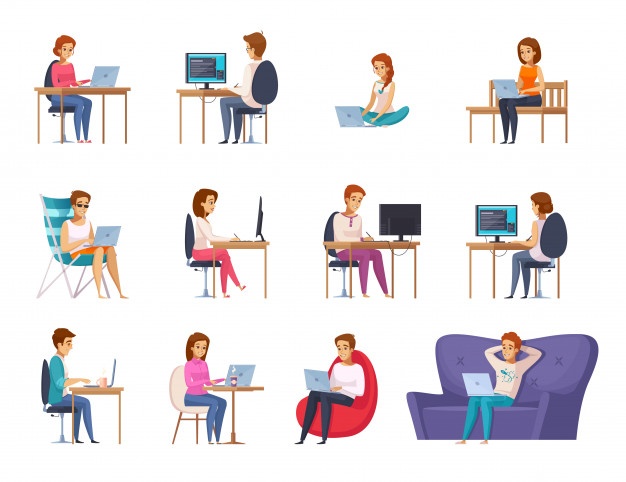These days I wake up to a peaceful morning, birds chirping in the balcony, no morning rush hour traffic, which gives me a bit more time for my morning rituals which includes a nice cup of tea with my book.
But this peace soon gets shattered and the morning madness starts when kids wake up and everyone occupies their designated space in the house with their gadgets. A cacophony of voices starts rising from the kitchen, online school classes and Zoom based office meetings. From national anthem to gummy bear song and meditation to placating demanding customers.
As a mother I feel, there are more responsibilities than just household work. We tend to be more emotionally available for our children even if it means just a cuddle. Most women usually invest additional 3 to 4 hours a day on household responsibilities and child care – adding up to essentially another part time job. No wonder they are among the most likely group to be considering stepping back, so much so the pandemic induced economic downturn is being called she-cession rather than recession.

As we step into the second year of pandemic, here’re 7 ways to bring more balance and happiness in our life while WFH:
1. Take a nature walk: Studies reveal that spending time in nature has a positive effect on the mind, body, and spirit. Yoshifumi Miyazaki from Chiba University, Japan, discovered that going for a 40-minute walk in a green forest lowers the level of cortisol, the stress hormone, blood pressure and supports the immune system more than a similar 40-minute walk indoors. Use this time to exercise, reflect, recharge and heal. Due to time constraints me and my husband have combined the walk in nature as “us” time where we connect and talk about everything ranging from kids to planning holidays.
2. Power of routine: Routine is a schedule that you create to prioritise and make space for habits that are important. Yes, it takes time and effort and yes, it may not be possible to follow it on certain days but it also brings more discipline in following the schedule which is more winning and productive. Just start and the add complicated tasks slowly once you are in the discipline of following a routine. For example, waking up at 4 am didn’t happen in day. I started with 6 am and slowly worked my way up to 4am.
3. Clutter free space: Our surroundings have a strong influence on our behaviour, cognition, emotions, decision-making, and even our relationship with others. A study by researchers from Princeton University Neuroscience Institute found that clutter limits your brain’s ability to process information. Look around your space and see what can you remove to create a better space for yourself. Effectively working from home requires optimising your environment to maximise health, happiness and productivity.
4. Setting boundaries: Boundaries can be physical or emotional, and they can range from being loose to rigid. Setting boundaries is an important part of establishing one’s identity and is a crucial aspect of mental health and well-being. Setting healthy boundaries can have many benefits, including helping people make decisions based on what is best for them, not just for the people around them. This autonomy is an important part of self-care.
5. Self care Sundays: Practicing a weekly digital detox and spending time on self will help a lot in enhancing your health and well-being. More and more studies are showing how our screen time negatively impacts everything from our sleep and memory to attention span, creativity, productivity, and even health. Unmindful social media usage can also lead to social comparison, which can result in impaired self-esteem and even depression, just having our phones in sight causes a rise in cortisol – body’s main stress hormone. Carve out time for meaningful purposes, relationships and self care tasks.
6. Make social connections: Meaningful relationships remain at the core of our emotional and psychological well-being as humans. However, the last one year has isolated us in our homes and left us with only virtual connections. More and more people are experiencing anxiety, depression and loneliness due to lack of human connections. Encourage ‘virtual water cooler chats’ during breaks. Login early to just ‘check-in’, ‘build emotional connections’ and have a ‘buddy system’.
7. Ask for support: Sometimes it’s not other’s unwillingness to provide support, it’s our inability to ask for help. While growing up if I have seen my mother managing home front efficiently, somewhere I started believing that asking for help would mean “weakness” or “lack”. Most of the organisations and leaders are also willing to help but how often do we come over that self – limiting thought and seek help. Remember, people like to reciprocate and as a leader you can create the culture of asking and giving help in your organisation.

Embrace change, give up perfectionism and fine tune where you need to. After all what life throws at you is not your choice but what you make of it is 100% your choice.


